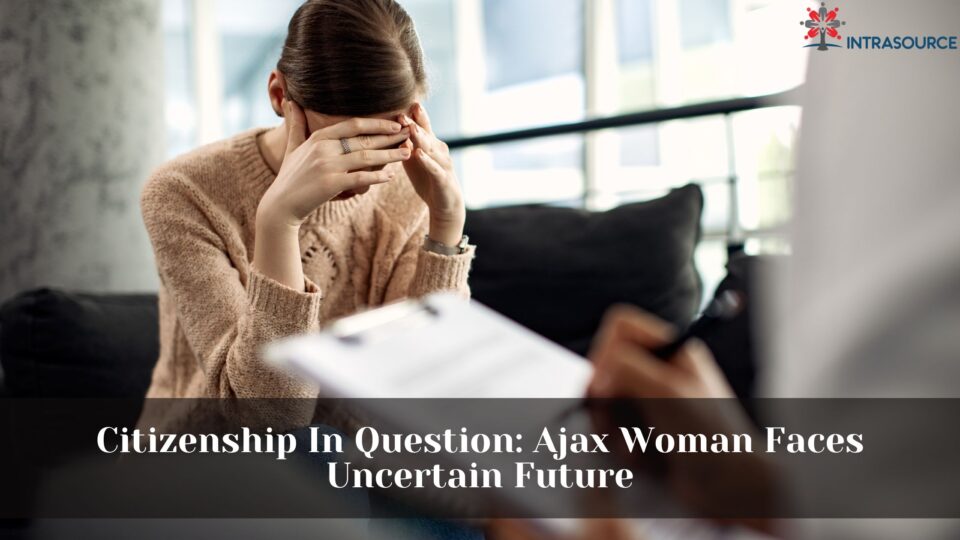Canadian citizenship review in a quiet suburb of Ajax, Ontario, Arielle Townsend, a 32-year-old woman faced the unimaginable. A letter from Immigration, Refugees and Citizenship Canada (IRCC) arrived at her doorstep last September, throwing her life into disarray. The federal department’s message was clear: her status as a Canadian citizenship review was under review and potentially revocable due to possible errors made years ago.
Roots Cast in Doubt
The bewilderment stemmed from Townsend’s lifelong belief in her Canadian citizenship review identity, rooted in her arrival to the nation as an infant. In 1992, a Mississauga citizenship office had affirmed her status by issuing a citizen card. “I was shocked and completely in disbelief,” Townsend confessed, grappling with the surreal notion of her identity shifting overnight.
Legal Challenge and Bureaucratic Silence
Determined to counter the government’s stance, Townsend engaged legal counsel to build her case. Her team maintained that an administrative oversight occurred and emphasized that Townsend’s mother held Canadian citizenship at the time of Arielle’s birth. Despite presenting their arguments meticulously, Townsend’s team encountered a wall of silence, having received no response for five months.
The Threat of Statelessness
Townend’s situation is complicated by the restrictions on her freedom to travel amidst these proceedings. If IRCC proceeds with the revocation of her Canadian citizenship review, she risks being stateless—a limbo that has provoked criticism about the government’s handling of such sensitive cases. Professor Audrey Macklin from the University of Toronto described this suspended state as “deeply insensitive” and raised ethical concerns regarding Townsend’s potential deprivation of citizenship.
A Journey Traced Back to Jamaica
The roots of Townsend’s citizenship lie in a series of familial decisions made prior to her birth. Her mother opted for Jamaica’s familial network for support during pregnancy after living in Canada for several years and securing Canadian citizenship herself. Upon Arielle’s birth in October 1991 and subsequent months, the young mother sought to resolve her daughter’s citizenship status—informally assured by a citizenship officer that no further action was necessary given her own status as a citizen.
The Twilight Zone Comes to Life
Daniel Kingwell, lawyer for Rebecca Townsend, describes this surreal scenario as mirroring an episode from the classic television series “The Twilight Zone.” Townsend, who has lived her entire life under the belief that she is a Canadian citizen, finds herself plunged into a baffling situation.
As Kingwell puts it, “You wake up one day and the government says you’re not a citizen,” echoing the sentiment of many who find themselves in perplexing, bureaucratic mazes.
Immigration Canada citizenship status
Government records have prompted officials to deny Townsend’s citizenship, suggesting she was born before her mother’s citizen status was officially granted. These records indicate Townsend was born in October 1991, three months after her mother became a Canadian citizen in July 1991. Kingwell contends that Immigration, Refugees and Citizenship Canada (IRCC) has made an error and should correct it to reflect the reality of Townsend’s rightful citizenship.
The Fight for Recognition
As Kingwell advocates for recognition and retention of Townsend’s citizenship on compassionate grounds, he acknowledges the slow response rate typical of Immigration Canada. With a current seven-month wait time for processing citizenship certificate applications, delays and lack of transparency remain frustrating hurdles for many like Townsend.
Systemic Issues Highlighted
Audrey Macklin, a voice in the community, points to broader systemic failures. Following an auditor general’s report criticizing federal systems as outdated and threatening service delivery, Macklin emphasizes the urgent need for improved management within immigration programs. A culture ingrained with delays and opacity breeds what Macklin calls “a culture of disrespect.”
IRCC’s Silence
Macklin reiterates that those like Townsend, left feeling helpless in their quest for proof beyond their reach, deserve at least an acknowledgement. The IRCC’s refusal to comment on individual cases maintains a barrier to understanding and resolution.
Living in Limbo
For those caught in this unsettling limbo of identity and recognition like Rebecca Townsend, the sentiment resonates with unsettling power: “I don’t know how they expect me to prove something I have no ability to prove.” The fight continues for individuals like her, awaiting the dawn after a twilight zone night.


